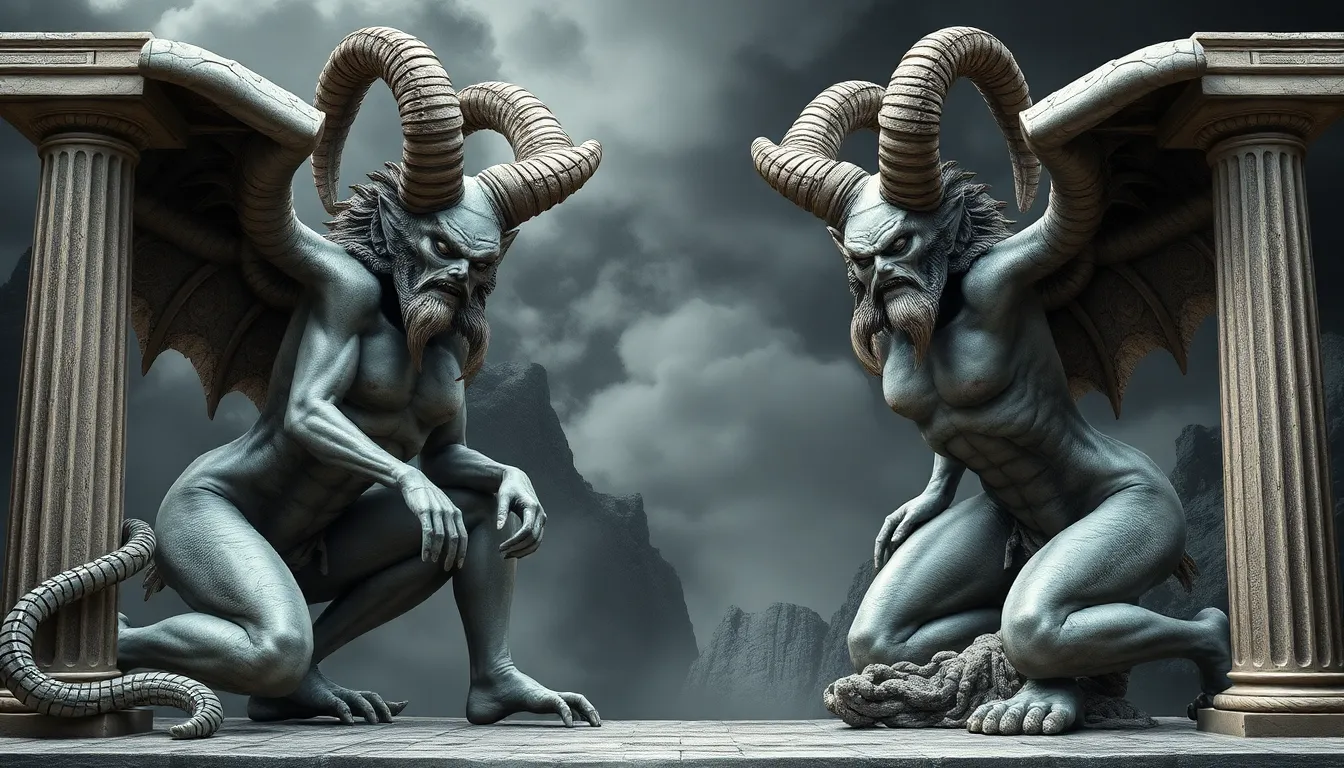Gorgons and Their Role in Greek Tragedy: Themes of Fear and Power
I. Introduction
In Greek mythology, Gorgons are fearsome creatures, often depicted as women with snakes for hair and a gaze that could turn anyone who looked at them into stone. Among them, Medusa is the most famous, embodying the terrifying yet fascinating nature of Gorgons. Their significance extends beyond mere mythological horror; they serve as powerful symbols in Greek tragedy, influencing both characters and narratives.
This article explores how Gorgons symbolize fear and power in Greek tragic plays, affecting the motivations and actions of characters while also driving the overarching themes of these narratives.
II. The Mythological Origins of Gorgons
Gorgons originate from ancient Greek mythology, described as monstrous females with the ability to petrify those who meet their gaze. Traditionally, there are three Gorgons: Stheno, Euryale, and Medusa, with Medusa being the only mortal among them.
Medusa’s story is particularly poignant. Once a beautiful maiden, she was transformed into a Gorgon as punishment by the goddess Athena. This transformation highlights the intersection of beauty and horror, and the implications of divine wrath and jealousy.
III. Gorgons as Symbols of Fear
The presence of Gorgons in Greek tragedies evokes a profound psychological impact on characters. Fear of the Gorgon’s gaze becomes a metaphor for the fear of the unknown and uncontrollable forces in life.
Fear serves as a driving force in tragic narratives, often leading to irrational actions, despair, and ultimately, downfall. Examples include:
- The fear of encountering the Gorgon leading to heroic quests and tragic failures.
- Characters making desperate decisions to avoid facing their fears, similar to how they would avoid looking at a Gorgon.
IV. The Power of the Gorgons
The Gorgons wield a unique kind of power, particularly through their petrifying gaze. This ability symbolizes a form of female power that challenges traditional gender roles in Greek society.
Gorgons assert their power in several ways:
- Through their ability to instill fear in male heroes, disrupting the typical power dynamics.
- As figures of vengeance for wrongs done to women, transforming from victims to agents of horror.
This power dynamic often creates tension between Gorgons and male characters, reflecting the complexities of gender relations in ancient Greek culture.
V. Gorgons in Major Greek Tragedies
The imagery of Gorgons appears in various works by prominent playwrights such as Aeschylus, Sophocles, and Euripides. These references enhance the themes of fear and power throughout their narratives.
For example, in:
- The Persians by Aeschylus, the fear of destruction and the supernatural is palpable, with Gorgons symbolizing the consequences of hubris.
- Oedipus Rex by Sophocles, the inability to escape fate mirrors the petrifying fear of the Gorgons, reflecting the tragic hero’s downfall.
- The Bacchae by Euripides, the Gorgons’ association with the divine and the fear they evoke is intertwined with themes of madness and transformation.
These Gorgon references impact plot development significantly, reinforcing the tragic outcomes faced by the characters.
VI. Themes of Transformation and Identity
The Gorgons embody a duality of beauty and monstrosity, with Medusa representing how beauty can be twisted into horror through external forces. This transformation serves as a powerful narrative device in Greek tragedies.
Characters often grapple with identity crises influenced by Gorgon motifs, as they confront their own fears and monstrosities. The transformation of Medusa serves as a reminder of how individuals can become what they fear or despise.
VII. Gorgons and the Concept of Fate
The Gorgons are deeply intertwined with the themes of predestined fate in Greek tragedy. They often represent the inescapable doom that awaits characters, much like the fates themselves.
As harbingers of doom, Gorgon figures underscore the tension between human agency and divine will. Characters who encounter Gorgons often find themselves trapped in a web of fate, unable to escape their predestined outcomes.
VIII. Conclusion
In summary, Gorgons hold a significant place in Greek tragedy, symbolizing the complex interplay of fear and power. Their terrifying presence influences characters and propels narratives, reflecting the deeper themes of transformation, identity, and fate.
The lasting impact of Gorgons extends beyond ancient texts, resonating in literature and modern media where themes of fear and power continue to be explored. The enduring legacy of the Gorgons invites us to reflect on our own fears and the power dynamics that shape our lives.




